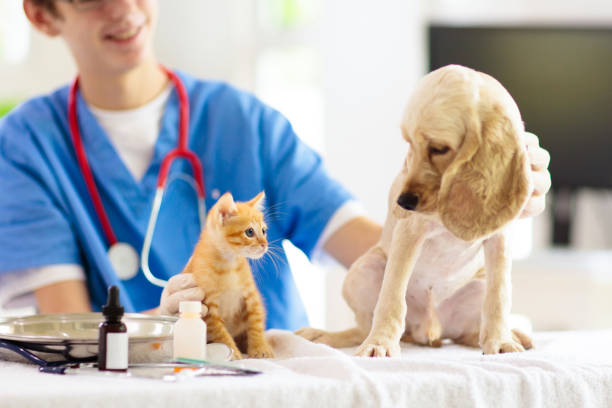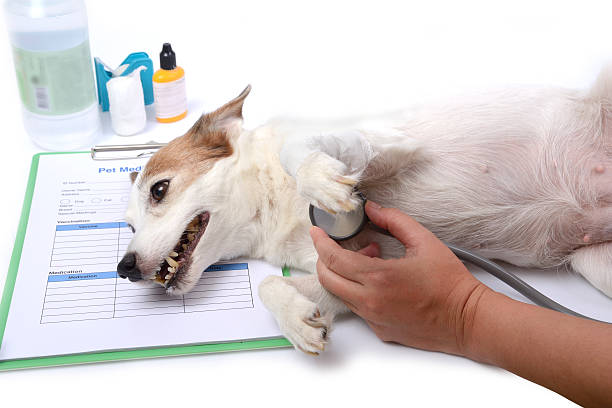Introduction: The Importance of Comprehensive Pet Health Care
Ensuring your pet’s overall well-being involves more than just providing food and water. A holistic approach to pet health includes proper nutrition, regular exercise, routine veterinary care, and attention to their mental and emotional needs. This article outlines key pet health practices that will help you maintain your furry friend’s happiness, health, and longevity.
1. Nutritional Excellence
1.1. Balanced Diet
- High-Quality Ingredients: Choose pet foods made with high-quality, named animal proteins and whole grains. Avoid products with fillers, by-products, and artificial additives.
- Nutritional Balance: Ensure your pet’s diet includes the right balance of proteins, fats, carbohydrates, vitamins, and minerals to support their specific health needs.
1.2. Life Stage and Special Needs
- Life Stage Nutrition: Provide age-appropriate food for puppies, adult pets, and seniors to meet their changing nutritional requirements.
- Special Diets: Address specific health concerns such as allergies, diabetes, or obesity with specialized diets and supplements.
1.3. Hydration
- Fresh Water: Always provide fresh, clean water. Proper hydration supports digestion, nutrient absorption, and overall health.
2. Regular Exercise and Physical Activity
2.1. Daily Exercise
- Routine Activity: Engage your pet in regular physical activity suitable for their age and breed. Activities like walks, play sessions, and interactive games keep them fit and healthy.
- Breed-Specific Needs: Tailor exercise routines to the needs of your pet’s breed. Active breeds may require more strenuous activities, while smaller or older pets may benefit from gentler exercise.
2.2. Mental Stimulation
- Interactive Toys: Use toys that challenge your pet’s intellect and keep them engaged. Puzzle toys, treat dispensers, and training games can help stimulate their mind.
- New Experiences: Introduce new activities and environments to keep your pet’s life varied and exciting.
3. Routine Veterinary Care
3.1. Regular Check-Ups
- Veterinary Visits: Schedule annual or semi-annual check-ups to monitor your pet’s health, update vaccinations, and address any health concerns.
- Preventive Screenings: Regular screenings can help detect issues early, such as dental problems, parasites, and chronic conditions.
3.2. Vaccinations and Preventatives
- Vaccination Schedule: Keep your pet’s vaccinations up-to-date to protect them from preventable diseases.
- Parasite Control: Use preventative treatments for fleas, ticks, and worms to keep your pet protected from parasites and related health issues.
4. Dental and Grooming Care
4.1. Dental Health
- Brushing: Brush your pet’s teeth regularly to prevent dental disease and maintain oral hygiene.
- Professional Cleanings: Schedule professional dental cleanings as recommended by your veterinarian to address tartar and plaque buildup.
4.2. Grooming
- Coat Maintenance: Brush your pet’s coat regularly to reduce shedding, prevent matting, and promote healthy skin.
- Bathing: Bathe your pet as needed with appropriate pet shampoos to keep their coat clean and healthy.
5. Mental and Emotional Health
5.1. Emotional Well-Being
- Quality Time: Spend quality time interacting with your pet to strengthen your bond and provide emotional support.
- Socialization: Socialize your pet with other animals and people to reduce anxiety and promote positive behavior.
5.2. Enrichment Activities
- Toys and Games: Provide a variety of toys and activities to keep your pet mentally stimulated and prevent boredom.
- Varied Experiences: Regularly introduce new experiences, such as different walking routes or pet-friendly outings, to keep your pet’s life engaging.
6. Safe and Comfortable Environment
6.1. Home Safety
- Hazard Prevention: Pet-proof your home by removing or securing hazardous items like toxic plants, chemicals, and small objects.
- Comfortable Living Space: Create a comfortable and safe space for your pet to rest, including a cozy bed and a quiet area where they can feel secure.
6.2. Climate Control
- Temperature Regulation: Ensure your pet is comfortable in various weather conditions. Provide adequate shelter and bedding for outdoor pets and maintain a comfortable indoor environment.
7. Monitoring and Adjusting Care
7.1. Health Observations
- Behavioral Changes: Monitor for changes in behavior, appetite, or activity levels, which can indicate health issues. Address any concerns with your veterinarian.
- Weight Management: Regularly assess your pet’s weight and adjust their diet and exercise routine as needed to maintain a healthy weight.
7.2. Consulting Professionals
- Veterinary Advice: Work closely with your veterinarian to tailor your pet’s wellness plan and address any health issues or changes in their condition.
- Specialist Referrals: Seek referrals to veterinary specialists for advanced care or management of specific health conditions.
Conclusion: Committing to Your Pet’s Health and Happiness
Ensuring your pet’s overall well-being involves a comprehensive approach that includes balanced nutrition, regular exercise, routine veterinary care, and attention to their mental and emotional health. By adopting these key health practices, you can help your furry friend enjoy a long, active, and joyful life. Regularly review and adjust their care plan to meet their evolving needs and keep them in optimal health. Your commitment to their well-being will ensure a happy, healthy, and fulfilling life for your beloved pet.



